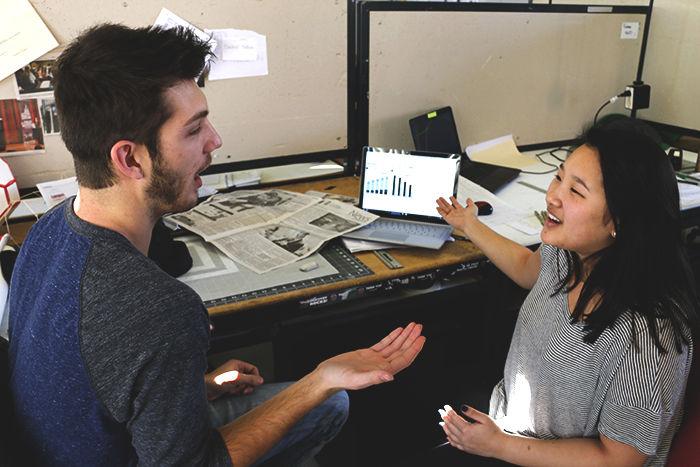Party affiliation should not define people
February 15, 2017
The anti-free speech riots at UC Berkeley on Feb. 1 highlighted what is increasingly the omnipresent issue of our time: political partisanship.
We now live in an age where we view the other political side so poorly we feel the need to silence those who disagree with us.
Cornell Clayton, director of the Foley Institute, explained that political scientists use an index, which measures the radicalism of Democrats and Republicans in the Senate. This index showed that Republicans have moved far to the right and Democrats far to the left.
This represents an increasing gap between the two parties. Your average College Republican has radically different views from your average College Democrat, and this division has made it increasingly hard for the two sides to communicate.
There is a poll, which showed how Democrats and Republicans’ feelings toward each other have declined dramatically over the past few decades, Clayton said. In one survey people actually said they preferred cockroaches to the other party.
It’s almost as if we believe that the people from the other side are worse than bugs, hardly even human for holding their beliefs. We’ve forgotten the personal side of politics.
Every Thanksgiving season, news sources publish articles about how to deal with your Republican uncle or your Democratic aunt. We don’t want to accept people in our own family who hold different views.
People often inherit their political views from their parents. I am not one of those people. My mother, during the primary season, was a huge supporter of Sen. Bernie Sanders, and even complained to me at one point that he wasn’t quite left wing enough for her taste.
I, in contrast, supported the candidate virtually on the other side of the political spectrum, Sen. Rand Paul. My only complaint was that he wasn’t quite capitalistic enough for my taste.
And yet my mother and I didn’t have to worry about having our Thanksgiving dinner reduced to shouting and tossing mashed potatoes. If we can stop and remember that the person we are talking to just thinks differently than we do, we can start to move past what jersey we’re wearing and actually start to talk about where we want our country to move.
“Partisanship is more powerful in the United States than other countries,” Clayton said. “Americans choose a partisan identity by the time they’re about 30, and vote for that party for the rest of their lives.”
Voters don’t really care about ideology or policies, but more about rooting for their own side, Clayton said. Bob Dole, the 1996 Republican candidate, actually had a very similar platform on healthcare to Obama, and yet Republicans believe Obama’s stance is the scourge of the earth.
It’s almost as if we are looking at the Patriots vs. the Falcons, rather than who will lead our country and make our policies.
Politics is not a football game. We need to hear other people out, even if we disagree with them and even if they offend us, so we can grow and understand where people are coming from. And who knows, we might just find that there is a thing or two we’ve been wrong about.
Harrison Conner is a junior economics major from Stanwood. He can be contacted at 335-2290 or by [email protected]. The opinions expressed in this column are not necessarily those of the staff of The Daily Evergreen or those of The Office of Student Media.




















